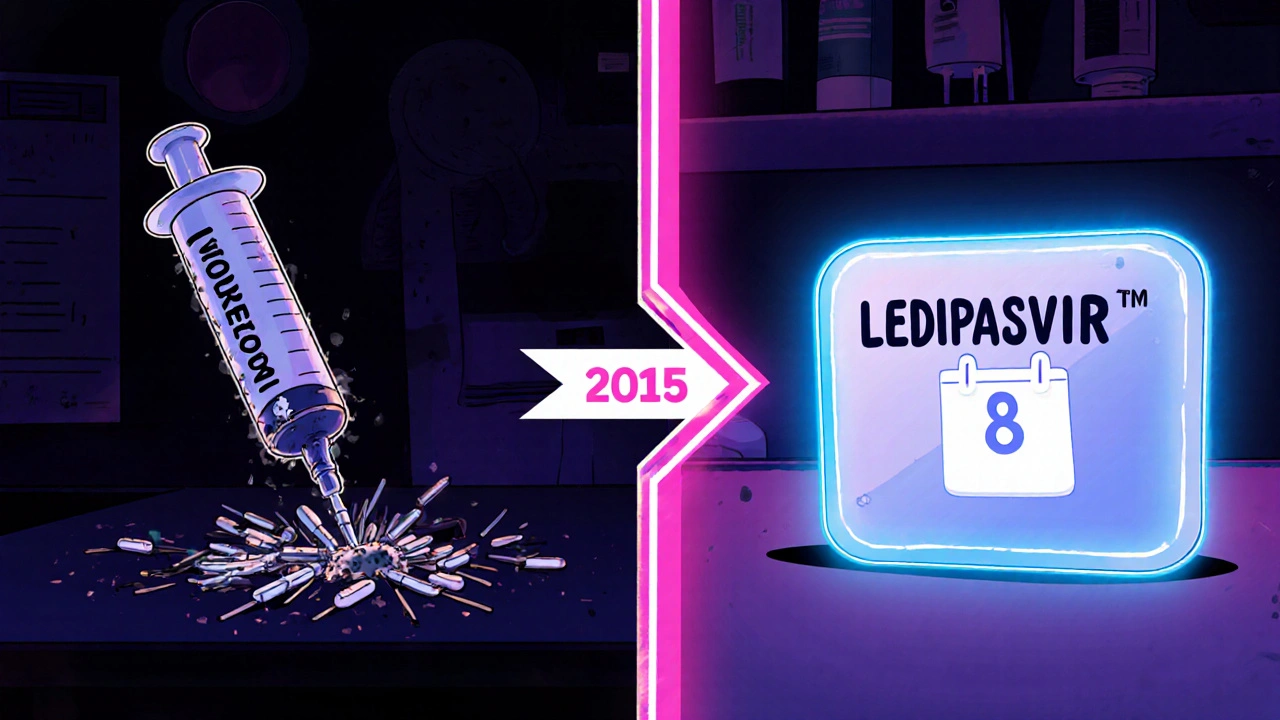Harvoni Impact: What It Does, Who It Helps, and What You Need to Know
When you hear about Harvoni, a once-daily pill that cures hepatitis C in most patients. Also known as ledipasvir/sofosbuvir, it’s one of the most effective treatments ever developed for chronic hepatitis C virus infection. Before Harvoni, treating hepatitis C meant weeks of injections, harsh side effects, and low success rates. Now, a simple 8- to 12-week course can clear the virus from your body—with over 95% of patients fully cured. That’s not just progress. It’s a revolution.
Harvoni works by blocking two key proteins the hepatitis C virus needs to multiply. It combines two drugs: sofosbuvir, which stops the virus from copying its genetic material, and ledipasvir, which prevents it from assembling new virus particles. Together, they hit the virus from two angles. This is why it’s called a direct-acting antiviral, a class of drugs that target the virus itself instead of boosting the immune system. Unlike older treatments that relied on interferon (which caused fatigue, depression, and flu-like symptoms), Harvoni is gentle. Most people feel fine while taking it. The biggest side effects? Maybe a mild headache or tiredness.
Who benefits the most? People with genotype 1 hepatitis C—the most common strain in the U.S. and Europe—see the best results. But Harvoni also works for genotypes 4, 5, and 6. It’s used in patients with or without cirrhosis, even those with advanced liver damage. And because it’s taken as one pill a day, adherence is high. No more daily injections or complex dosing schedules. It’s also safe for people with HIV co-infection, a group that used to have fewer treatment options.
But Harvoni isn’t the only option. Other direct-acting antivirals, like Epclusa, Mavyret, and Vosevi, have since entered the market. Some are even broader in coverage, treating all hepatitis C genotypes in one pill. Others are cheaper, especially generic versions now available worldwide. Still, Harvoni remains a benchmark. It proved that hepatitis C could be cured with simplicity, safety, and high success rates.
What about liver health after treatment? Even after the virus is gone, some patients still need monitoring—especially if they had cirrhosis before starting Harvoni. The liver can heal, but not always completely. That’s why follow-up care matters. Blood tests, ultrasound scans, and lifestyle changes (like avoiding alcohol) help protect your liver long-term.
Harvoni didn’t just change treatment—it changed lives. People who once feared liver failure, transplants, or death from hepatitis C now live without the virus. They return to work, travel, and raise families without the shadow of this disease. And while newer drugs are emerging, Harvoni’s impact still echoes across clinics and pharmacies worldwide.
Below, you’ll find real-world insights on how Harvoni fits into broader treatment strategies, what alternatives exist, and how patients manage life before, during, and after treatment. Whether you’re a patient, caregiver, or just curious, these posts give you the facts without the fluff.
Ledipasvir’s Impact on Global Hepatitis C Treatment
Explore how Ledipasvir transformed hepatitis C therapy worldwide, boosting cure rates, shaping WHO elimination goals, and what challenges and future prospects lie ahead.
